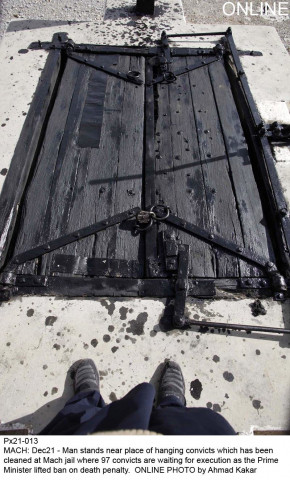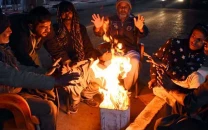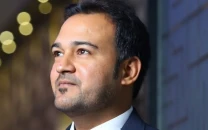On death row: ‘Executions to take place in four phases’
Lawyer argues that Shafqat Hussain, now in his 20s, was 13 at the time of the offence.

This information was shared by the home and prisons authorities during the hearing of a petition against the likely execution of a convict, Shafqat Hussain, who sought retrial of a murder case against him by a juvenile court.
Advocate Sarah Belal said that Hussain was sentenced to death by an anti-terrorism court for murdering seven-year-old Omer within the limits of the New Town police station. She argued that he was sentenced without taking his age into consideration. Hussain was 13-years-old at the time of the offence and is in his 20s now. She said that the government had also requested the trial court to take back warrants for the petitioner and pleaded to the court to order against such warrants till the question of the petitioner's age was decided.
On Tuesday, federal standing counsel Ashraf Rafiq Janjua opposed the petition, arguing that the petitioner did not discuss the issue of his age during trial or in his appeals before the high court and Supreme Court of Pakistan, where his second review petition is pending decision.
Janjua also disclosed that no black warrants had been issued for the petitioner as yet.
This led the two-judge bench to ask the home and prison authorities what the criteria of execution of the death sentences were. They verbally informed the court that the death sentences would be executed in four phases.
They said that convicts belonging to banned sectarian outfits would be executed in the first phase while others associated with militant groups would be hanged in the second phase. The officers added that the death sentence of those prisoners who were not associated with militant or sectarian groups would be executed in the third phase. The last phase was for convicts associated with political and religious groups.
Belal said that her client had already served a length of time on death row almost equivalent to the period of life imprisonment with remissions. "The enforcement of the death penalty would amount to double punishment, which is expressly prohibited in the Constitution," she said.
The judges observed that at this stage they could not revisit or pass any order under constitutional jurisdiction to set aside the hierarchy or chain of judgments in this case.
They ruled: "As a result of the above discussion, we reach the conclusion that this petition is not maintainable, which is dismissed in limine."
Published in The Express Tribune, December 24th, 2014.



















COMMENTS
Comments are moderated and generally will be posted if they are on-topic and not abusive.
For more information, please see our Comments FAQ